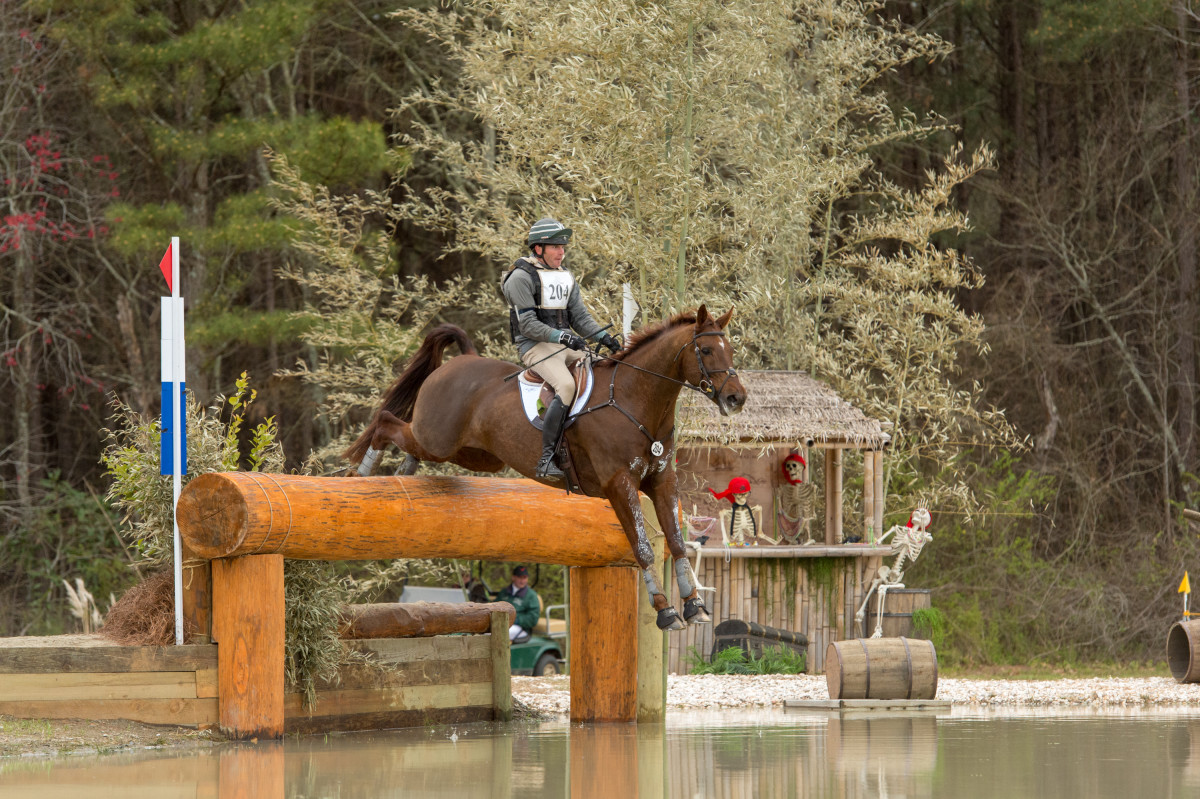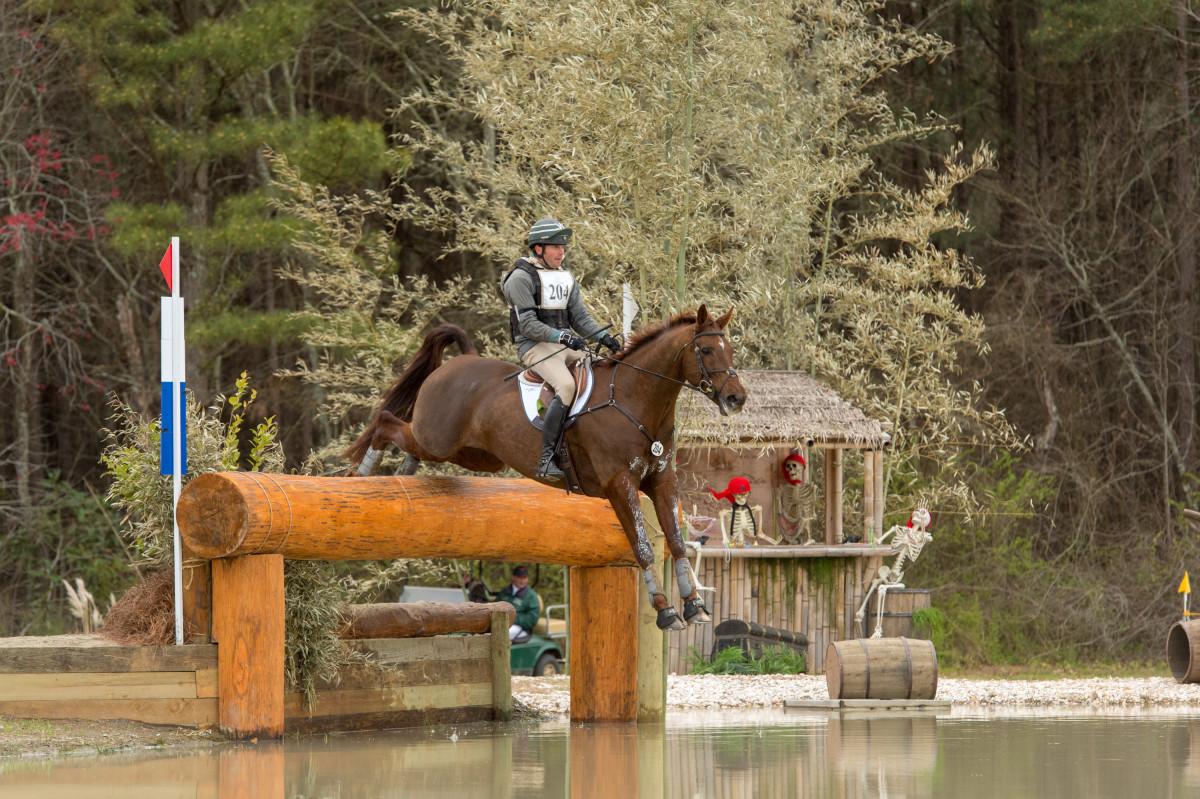Australian native Ryan Wood started competing in eventing at 8 years old. He purchased his first horse, an Australian Stock Horse named Countdown, through a local newspaper for $1,500. Ryan and Countdown moved up through the levels of eventing together, completing their first CCI***** at Adelaide when they were both 19 years old.

Ryan competed successfully throughout Australia, garnering top placings at Melbourne CCI****, Sydney CCI**** and Warwick CIC-W****. He trained with and worked for numerous top riders, including Australian eventer Guy Wallace, Olympic dressage trainer Norbert Van Laak and top champion show jumpers Ludger Beerbaum and Ernst Hofschroer.
Ryan moved to the United States in 2008 and started working for Bruce Davidson before moving to Phillip Dutton’s True Prospect Farm in Unionville, Pennsylvania. He now runs his own business, Woodstock Eventing out of True Prospect Farm. Since moving to the U.S. Ryan has become one of the top event riders in the country. In 2016 he won the Jersey Fresh CCI***, Bromont CCI*** and the USEA Adequan Advanced Gold Cup Final at the American Eventing Championships—where he also earned the reserve championship. In 2018 Ryan finished 8th at Pau CCI***** and was named the reserve rider for the Australian eventing team at World Equestrian Games. In addition to competing, Ryan also enjoys teaching and developing young horses.
During our conversation, Ryan shares his overall training philosophy, how to introduce cross-country corners, what he looks for in an eventing prospect, how he deals with the lows of the sport and more.
You can listen to the full interview wherever you get podcasts, but in the meantime, here is a snippet of the conversation.
How did you first get involved with horses?
We grew up in a small town about an hour from Sydney called Annangrove where everyone had a horse in their backyard. We actually were a little a deprived of a horse. We had a donkey to start—a donkey named Penny. Once we outgrew the donkey my parents went and bought a pony from the circus named Bucko, so he was my first pony. Bucko used to throw in tricks but they were not authorized by the rider. He’d jump a jump and then he’d stop on the other side and put his head down and I’d fall off. We’d be lined up in a troop drill in Pony Club and he’d be standing on his hind legs, waving at the instructor. He was a cool little horse but he had some characteristics that he brought from the circus that weren’t ideal.

What’s your overall training philosophy?
The main thing I would be focused on with all of my horses is progression and to always start out easy or make it very obvious to the horse and then build on that and start to challenge them from that. Cross-country training for a 4-year-old horse through a five-star event horse is to still have that progression when you go out there introducing the exercise or the question to the horse no matter what age or what level and make sure they understand it and build off that so the horse has never doubted the rider. Then when you go to an event and you’re asking him to do something where he’s jumping into an area where he can’t see the landing, or he’s jumping a narrow fence or off a blind turn, you’ve never put him in situation where he hasn’t been able to do it and so he never questions you and he’ll always perform. So that’s the way I think about things. Never be chance-y and when you train never take a risk and be very methodical and spell it out for the horse so he’s very understanding and confident in what you’re asking him to do and then he’ll never question you when you’re out on course.

You are also known for being an incredibly strong and consistent cross-country rider. According to statistics from EquiRatings, at the national level in 2019, out of 199 rounds you jumped 198 clear. And the year before you jumped all 114 rounds clear, with 97 of those inside the time, which is incredibly remarkable. What is it about your riding or your program that you think has led to such consistent results?
It is pretty awesome to have that stat said. I didn’t realize that until EquiRatings posted it. I got out on cross country on every horse that I ride with the expectation that there is no doubt in my mind that we’re coming home clear. I feel that the preparation to get to the event is very important and what I touched on before about having a progression in not only in the way to move up the levels but to school any horse at any level every time you school to make them so confident and believe in you that when you leave the start box there’s no doubt in the horse’s mind and there’s no doubt in the rider’s mind and that’s the way I think about it.
How do you approach selecting horses for your program?
That’s a good question and it’s something that I’m always discussing with my peers and my mentors and I’m still trying to figure that out. If you tell yourself, ‘I’m going to go on a horse shopping trip,’ don’t feel that that you have to come to home with horse whether it’s in America or overseas, if you’ve got to talk yourself into it, it’s not the right one. You’ve got to be really honest with yourself. If you’ve got to watch the video multiple times to be happy with what you are purchasing, it’s probably not the right the one.

I think you’ve got to ride it and get off it and say, ‘This is the one.’ It’s a rare thing to do. I’ve been on shopping trips and I’ve come home with the right horses, and I’ve come home with the wrong horses and I’ve come home without horses. It’s still something that’s not foolproof but I think that’s a good gage to keep with you. Be honest with yourself.
This is a sport that has a lot has a lot of highs and a lot of lows, how do you keep things in check or deal with things when they’re not quite going your way?
That’s a great question and I think it’s probably an important one for people to hear and people to talk about because there’s probably more lows than highs in general and there’ll be streaks where you’re winning everything and then there’ll be streaks when you can’t get anything to go your way. I think it’s important to have the right people around you and they’ve been through the highs and the lows, so they know exactly what you’re going through and then you can be there for them. And to just keep on pushing as well, and don’t dwell on it. Find something positive to work toward, whether it’s nice young horses are coming through or you go and find a new horse to bring along or whatever it is, or you start focusing on another aspect of your riding and say OK, ‘I’ve got this downtime because my top horse has got to have six months off, but I can still ride dressage and I’m going to make this six months count so when I’m back eventing, I’m going to be that much more competitive after dressage’ and find ways like that.
See also: A Leap of Faith
What’s your favorite part about this sport?
It’s a fantastic life that we live. We’re outside, we’re doing what we love to do. We get to see some incredible places, we travel the world for competitions. I think what makes the highs so high is the time , the effort, the struggle, the setbacks, the knockdowns that you’ve had, to then get that win or get that top 10 at a five-star, you appreciate it that much more and then you can celebrate your friends that get there because you’ve seen what they’ve gone through to get there. I think that it’s such a long road to get there and it’s such an awesome feat for someone to do it that it’s an awesome feeling when it goes well at the top.

About the Practical Horseman Podcast
The Practical Horseman podcast features conversations with respected riders, industry leaders and horse-care experts to inform, educate and inspire. It is co-hosted by Practical Horseman editors. Find the podcast at iTunes, Stitcher and Soundcloud or wherever you get your podcasts.






